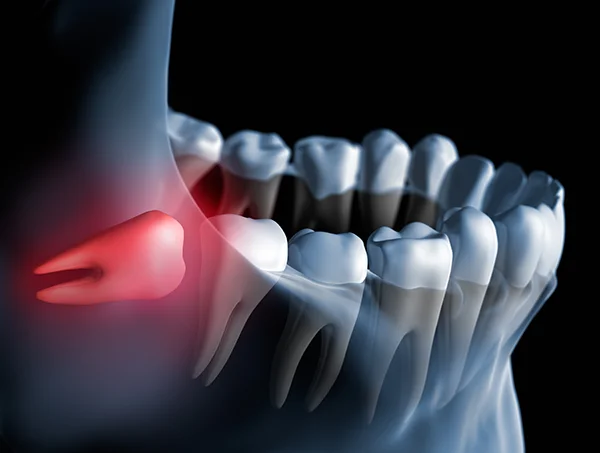Complications Associated With Wisdom Tooth Extraction
Posted on 6/3/2024 by Surf City Oral and Maxillofacial Surgery |
 Wisdom teeth removal is a routine oral surgery. However, like any procedure, it does carry a small risk of complications. Understanding the potential issues that can arise after wisdom tooth extraction allows you to take steps to avoid them and know what to watch out for during recovery. Wisdom teeth removal is a routine oral surgery. However, like any procedure, it does carry a small risk of complications. Understanding the potential issues that can arise after wisdom tooth extraction allows you to take steps to avoid them and know what to watch out for during recovery.
Infection
Proper oral care significantly reduces the chances of infection after wisdom teeth removal. Signs include fever, chills, pain, swelling, and foul taste or breath. See your surgeon promptly if these occur, as antibiotics may be needed to clear the infection.
Dry Socket
A dry socket develops when the blood clot at the surgery site gets dislodged too soon, exposing the bone and nerves. This is painful and can delay healing. To prevent dry sockets, avoid smoking, drinking from straws, vigorous rinsing, or disturbing the site.
Nerve Damage
The roots of wisdom teeth lie close to the nerves in the jaw. Rarely, these nerves may get bruised or damaged during removal, resulting in numbness or tingling of the lip, chin, or tongue. This is usually temporary but can sometimes be permanent.
Bleeding
Some minor bleeding is normal after surgery. However, uncontrolled bleeding can occasionally occur if stitches dissolve too early. Applying pressure with gauze or a tea bag helps stop excessive bleeding. Seek emergency care if bleeding is heavy.
Sinus Issues
Extracting wisdom teeth located in the upper jaw can potentially result in sinus complications, such as sinusitis, because of the proximity between the tooth and the maxillary sinus. Symptoms are sinus pain, congestion, and discharge. Sinus precautions like avoiding blowing your nose hard lower this risk.
Reactions to Anesthesia
Local anesthesia is commonly used for wisdom tooth removal. Allergic reactions or side effects, such as nausea, drowsiness, or dizziness, may sometimes occur. Alert your surgeon about any prior reaction to inform your anesthesia choice.
While risks are minimal, knowing the potential complications empowers you to take preventive action and promptly report any issues to your oral surgeon for appropriate management. Contact our office if you have any further questions.
|
|